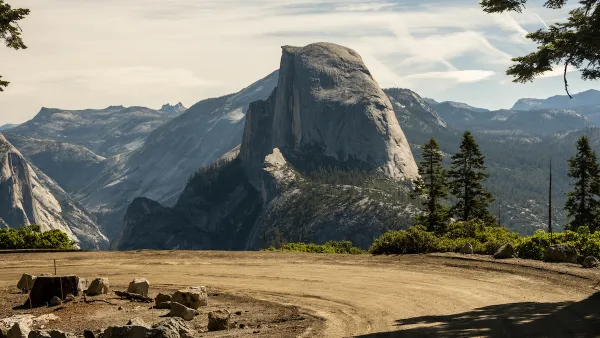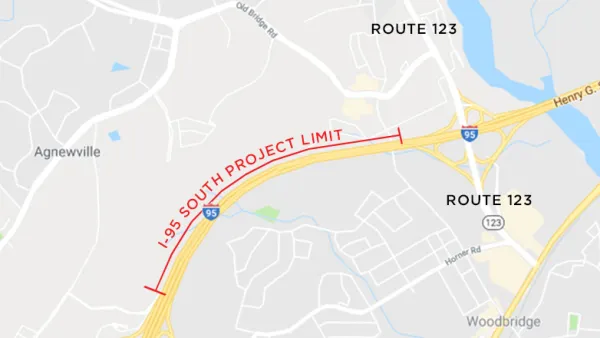The Infrastructure Investment and Jobs Act of 2021 promised to achieve major progress on emissions reductions and climate resilience. A total of 38 states used the bill to fund emissions- and pollution-producing car-centric infrastructure instead.

A total of $755 million in funding intended for climate resilience and emissions reductions from the Infrastructure Investment and Jobs Act (IIJA) has instead been repurposed for highway construction projects, according to a recent article by Ian Duncan in the Washington Post.
Last year, 38 states “made use of a provision in the law” to shift the funding to general-purpose highway construction accounts, reports Duncan, citing records from the Federal Highway Administration acquired through the Freedom of Information Act as proof.
“California shifted $97 million to pay for safety projects. New York moved $36 million to fund what officials called the state’s ‘core capital program,’” writes Duncan “Arizona said it used $20 million for its five-year highway construction program, largely for “pavement preservation,” and Louisiana used $8.2 million to fund roundabouts near an outlet mall.”
“Five states couldn’t account for how the money was used after it was transferred,” adds Duncan.
The Article echoes the news since the IIJA’s adoption—states have complained about slow funding programs while others, such as Nebraska, immediately got to work funding projects that will immediately increase pollution and emissions. To be fair, we were warned this could happen.
As for how states were able to pervert the intentions of these taxpayer-funded funding programs, Duncan blames the bipartisan compromises that produced the IIJA, along with a legal provision predating the law’s approval. “A legal provision predating the infrastructure law allows states to shift up to half of their federal transportation funds among several programs — a provision that also applies to transportation money from the new law,” writes Duncan.
Kevin DeGood, director of the infrastructure program at the left-leaning Center for American Progress, is quoted in the article describing the news about the shifted funding as an “absolute failure.”
FULL STORY: States siphoned away $750 million in infrastructure law climate funds

Analysis: Cybertruck Fatality Rate Far Exceeds That of Ford Pinto
The Tesla Cybertruck was recalled seven times last year.

National Parks Layoffs Will Cause Communities to Lose Billions
Thousands of essential park workers were laid off this week, just before the busy spring break season.

Retro-silient?: America’s First “Eco-burb,” The Woodlands Turns 50
A master-planned community north of Houston offers lessons on green infrastructure and resilient design, but falls short of its founder’s lofty affordability and walkability goals.

Test News Post 1
This is a summary

Analysis: Cybertruck Fatality Rate Far Exceeds That of Ford Pinto
The Tesla Cybertruck was recalled seven times last year.

Test News Headline 46
Test for the image on the front page.
Urban Design for Planners 1: Software Tools
This six-course series explores essential urban design concepts using open source software and equips planners with the tools they need to participate fully in the urban design process.
Planning for Universal Design
Learn the tools for implementing Universal Design in planning regulations.
EMC Planning Group, Inc.
Planetizen
Planetizen
Mpact (formerly Rail~Volution)
Great Falls Development Authority, Inc.
HUDs Office of Policy Development and Research
NYU Wagner Graduate School of Public Service




























